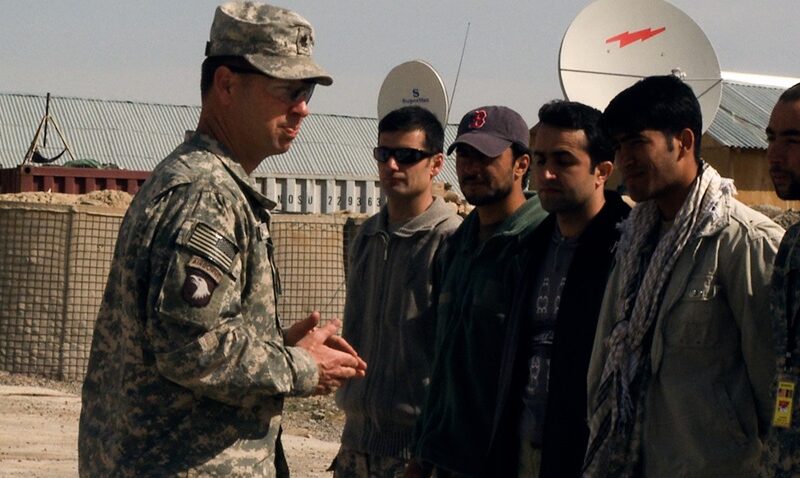Interpreters Wanted (Ham, 2024)
Interpreters Wanted puts a human face on a political issue so seemingly one-sided that it is hard not to fault the film for refusing to be angrier and failing to clarify which individuals or groups bear the brunt of responsibility for it.
When the United States withdrew forces from Afghanistan, many Afghani interpreters who had worked for the U.S. military were left behind despite being promised visas for their work. Robert Ham’s documentary tells the story of two of them, Saifullah and Ismail, and Ham’s attempts to get the American government to honor its promises to them and those like them.
“Too much explanation,” I wrote in my notes after one too many early scenes laying out the reasons why the role of interpreters was crucial during a military presence. I can’t imagine any viewer of any political stripe openly declaring that he or she was happy about the death threats to these allies and their families. So the film seemed to call out for a *little* more blame apportionment rather than an exclusive focus on one family’s attempts to get out of Afghanistan after the Americans had left.
The closest the film comes to pointing fingers is the inclusion of a brief clip of Donald Trump calling for the immigration of all Muslims. But given that the American evacuation took place under the subsequent president’s administration, it is less than clear what the film wants us to take from that clip. Was this a Trump-era restriction that the Biden administration failed to overturn or consider before withdrawing troops? Were those who could approve visas or expedite background checks refusing to do so in order to make one political party or the other look bad? It is understandable given Ham’s own military background that he would need to avoid the appearance of partisanship, but if that is the case, it undercuts the argument that honoring our promises is a moral issue that should transcend party politics.
That being said, there is enough here — barely — to recommend the film. While it concerns me that both sides of a polarized populace could use the film to blame the other, it is also possible that the right viewer at the right time might be induced to push past social media soundbites and consider how real-world problems are usually more complex than partisan spin-doctoring would have you believe. I am happy that the United States (eventually) honored its promises to Saifullah and Ismail. I would have been happier with a film that was willing to be more direct and blunt in its assessment of why it took us so long to do so.

